Synopsis
This episode takes a journey through the unseen world of decisions, and how they get made.
- Programme: The Brain with David Eagleman
- Episode: How Do I Decide?
- Channel: BBC Four
- Broadcast year: 2016
- Psychology | Cognitive Psychology | How the mind works and processes information
Licence: ERA Licence required
UK only
Staff and students of licensed education establishments only
Cannot be adapted
Add Notes
More clips from The Brain with David Eagleman
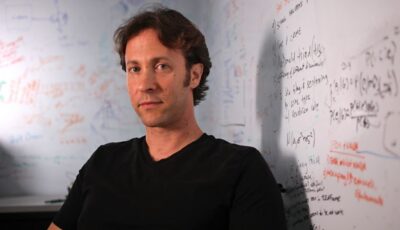
1: What Is Reality? | The Brain with David Eagleman
1: What Is Reality? | The Brain with David Eagleman
David takes us on a journey that explores how the brain, locked in silence and darkness without direct access to it, conj...
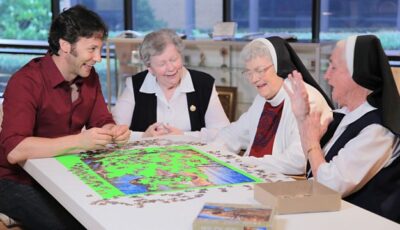
2: What Makes Me? | The Brain with David Eagleman
2: What Makes Me? | The Brain with David Eagleman
David explores how the brain conjures up the world we take for granted. This episode shows how the brain gives rise to thou...
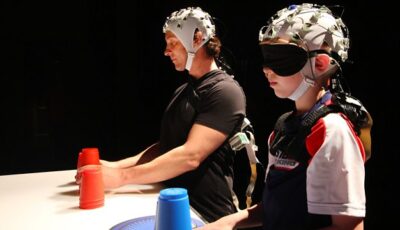
3: Who Is in Control? | The Brain with David Eagleman
3: Who Is in Control? | The Brain with David Eagleman
David explores how almost every action we take, every decision we make, every belief that we hold is driven by parts of...
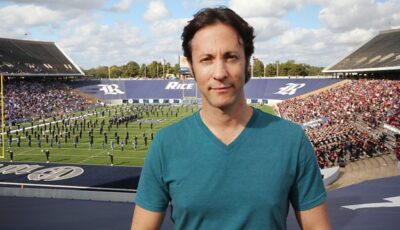
5: Why Do I Need You? | The Brain with David Eagleman
5: Why Do I Need You? | The Brain with David Eagleman
This episode looks at how the human brain relies on other brains to thrive and survive.
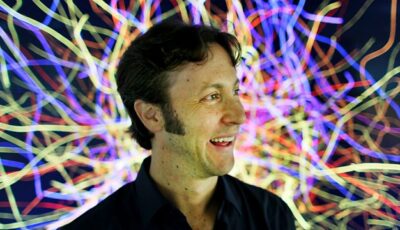
6: Who Will We Be? | The Brain with David Eagleman
6: Who Will We Be? | The Brain with David Eagleman
Dr Eagleman journeys into the future, and asks what's next for the human brain and for our species.

An introduction to Freud's work | The Brain with David Eagleman
An introduction to Freud's work | The Brain with David Eagleman
A brief introduction to Freud's work and the role of the unconscious mind in mental health.
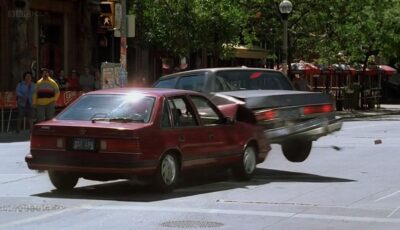
Can leading questions distort memory? | The Brain with David Eagleman
Can leading questions distort memory? | The Brain with David Eagleman
Professor Elizabeth Loftus summarises her famous study about leading questions and distorting memory.

Nature vs nurture | The Brain with David Eagleman
Nature vs nurture | The Brain with David Eagleman
The interplay between genetics and the environment, do we truly have free will over our behaviour?

Right hemisphere removal | The Brain with David Eagleman
Right hemisphere removal | The Brain with David Eagleman
Professor Casey explains her research into delayed gratification and the impact this has on behaviour.

Taxi drivers and plasticity | The Brain with David Eagleman
Taxi drivers and plasticity | The Brain with David Eagleman
An introduction to the Marshmallow study and what this shows about delayed gratification.

Visual attention | The Brain with David Eagleman
Visual attention | The Brain with David Eagleman
When we view an object or scene, we don't take a mental photograph. Instead, our brain is choosing to focus attention on a f...
More resources about Long and short term memory

2: Becoming Social | Babies: Their Wonderful World
2: Becoming Social | Babies: Their Wonderful World
Episode two looks at why we are born to respond to faces, what makes babies laugh and how we learn to empathise with others.

2: What Makes Me? | The Brain with David Eagleman
2: What Makes Me? | The Brain with David Eagleman
David explores how the brain conjures up the world we take for granted. This episode shows how the brain gives rise to thou...

3: Who Is in Control? | The Brain with David Eagleman
3: Who Is in Control? | The Brain with David Eagleman
David explores how almost every action we take, every decision we make, every belief that we hold is driven by parts of...
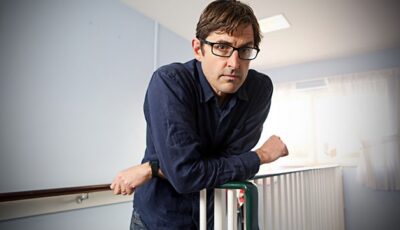
A Different Brain | Louis Theroux
A Different Brain | Louis Theroux
Louis takes a look at the issues that some of the estimated one million people in the UK living with the long-term effects of a brain injur...

My Brain: After the Rupture
My Brain: After the Rupture
The incredible story of broadcaster, journalist, musician and author Clemency Burton-Hill's recovery following a devastating brain haemorrhage in...
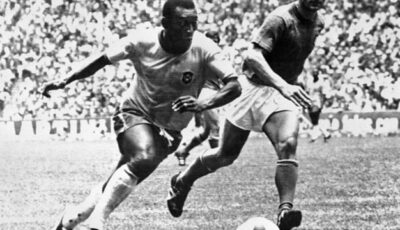
Unintentional blindness | Health Check
Unintentional blindness | Health Check
An explanation of how unintentional blindness occurs, for example with the case of the invisible gorilla.

Using Favourite Sporting Memories Therapeutically | Health Check
Using Favourite Sporting Memories Therapeutically | Health Check
Using sporting memories therapeutically; Why oxytocin might help treat anorexia; Therapists' dreams about th...
